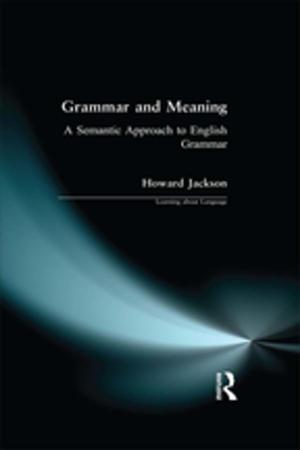Seduction, Surrender, and Transformation
Emotional Engagement in the Analytic Process
Nonfiction, Health & Well Being, Psychology, Applied Psychology, Psychotherapy| Author: | Karen J. Maroda | ISBN: | 9781135060848 |
| Publisher: | Taylor and Francis | Publication: | June 17, 2013 |
| Imprint: | Routledge | Language: | English |
| Author: | Karen J. Maroda |
| ISBN: | 9781135060848 |
| Publisher: | Taylor and Francis |
| Publication: | June 17, 2013 |
| Imprint: | Routledge |
| Language: | English |
Seduction, Surrender, and Transformation demonstrates how interpersonal psychoanalysis obliges analysts to engage their patients with genuine emotional responsiveness, so that not only the patient but the analyst too is open to ongoing transformation through the analytic experience. In so doing, the analyst moves from the position of an "interpreting observer" to that of an "active participant and facilitator" whose affective communications enable the patient to acquire basic self-trust along with self-knowledge.
Drawing on the current literature on affect, Maroda argues that psychological change occurs through affect-laden interpersonal processes. Given that most patients in psychotherapy have problems with affect management, the completing of cycles of affective communication between therapist and patient becomes a vitally important aspect of the therapeutic enterprise. Through emotionally open responses to their patients and careful use of patient-prompted self-disclosures, analysts can facilitate affect regulation responsibly and constructively, with the emphasis always remaining on the patients' experience.
Moments of mutual surrender - the honest emotional giving over of patient to analyst and analyst to patient - epitomize the emotionally intense interpersonal experiences that lead to enduring intrapsychic change. Maroda's work is profoundly personal. She does not hesitate to share with the reader how her own personality affects her thinking and her work. Indeed, she believes her theoretical and clinical preferences are emblematic of the way in which the analyst's subjectivity necessarily shapes theory choice and practice preferences in general. Seduction, Surrender, and Transfomation is not only a powerful brief for emotional honesty in the analytic relationship but also a model of the personal openness that, according to Maroda, psychoanalysis demands of all its practitioners.
Seduction, Surrender, and Transformation demonstrates how interpersonal psychoanalysis obliges analysts to engage their patients with genuine emotional responsiveness, so that not only the patient but the analyst too is open to ongoing transformation through the analytic experience. In so doing, the analyst moves from the position of an "interpreting observer" to that of an "active participant and facilitator" whose affective communications enable the patient to acquire basic self-trust along with self-knowledge.
Drawing on the current literature on affect, Maroda argues that psychological change occurs through affect-laden interpersonal processes. Given that most patients in psychotherapy have problems with affect management, the completing of cycles of affective communication between therapist and patient becomes a vitally important aspect of the therapeutic enterprise. Through emotionally open responses to their patients and careful use of patient-prompted self-disclosures, analysts can facilitate affect regulation responsibly and constructively, with the emphasis always remaining on the patients' experience.
Moments of mutual surrender - the honest emotional giving over of patient to analyst and analyst to patient - epitomize the emotionally intense interpersonal experiences that lead to enduring intrapsychic change. Maroda's work is profoundly personal. She does not hesitate to share with the reader how her own personality affects her thinking and her work. Indeed, she believes her theoretical and clinical preferences are emblematic of the way in which the analyst's subjectivity necessarily shapes theory choice and practice preferences in general. Seduction, Surrender, and Transfomation is not only a powerful brief for emotional honesty in the analytic relationship but also a model of the personal openness that, according to Maroda, psychoanalysis demands of all its practitioners.















